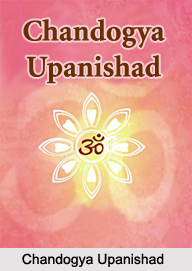 Chandogya Upanishad, one of the oldest Upanishad has been written during the Vedic Brahmana period. Chandogya Upanishad is associated with Sama Veda. Chandogya Upanishad is the part of Chandogya Brahaman that contains ten chapters. The 24th Khanda of Part Five of Chandogya Upanishad states about the glory of the Agnihotra Sacrifice. According to this if a person offers an Agnihotra oblation without the knowledge of the Vaisvanara Self, it would be like an oblation that has been offered in dead ashes after removing the live coals. However, if one is aware of this and offers the Agnihotra oblation it would be like an oblation offered in all the worlds, in all beings and in all atmans. Like the soft fibres of the ishika reed get burnt when thrown into fire, so also are burnt all the sins of one who, knows this and offers an Agnihotra oblation. Thus, if a man knows this and realises it and then offers his leftover food to a chandala, he verily offers it to his Vaisvanara Self. As on earth all children gather near their mother when they are hungry, so do all beings gather around the Agnihotra sacrifice.
Chandogya Upanishad, one of the oldest Upanishad has been written during the Vedic Brahmana period. Chandogya Upanishad is associated with Sama Veda. Chandogya Upanishad is the part of Chandogya Brahaman that contains ten chapters. The 24th Khanda of Part Five of Chandogya Upanishad states about the glory of the Agnihotra Sacrifice. According to this if a person offers an Agnihotra oblation without the knowledge of the Vaisvanara Self, it would be like an oblation that has been offered in dead ashes after removing the live coals. However, if one is aware of this and offers the Agnihotra oblation it would be like an oblation offered in all the worlds, in all beings and in all atmans. Like the soft fibres of the ishika reed get burnt when thrown into fire, so also are burnt all the sins of one who, knows this and offers an Agnihotra oblation. Thus, if a man knows this and realises it and then offers his leftover food to a chandala, he verily offers it to his Vaisvanara Self. As on earth all children gather near their mother when they are hungry, so do all beings gather around the Agnihotra sacrifice.
This article is a stub. You can enrich by adding more information to it. Send your Write Up to content@indianetzone.com












